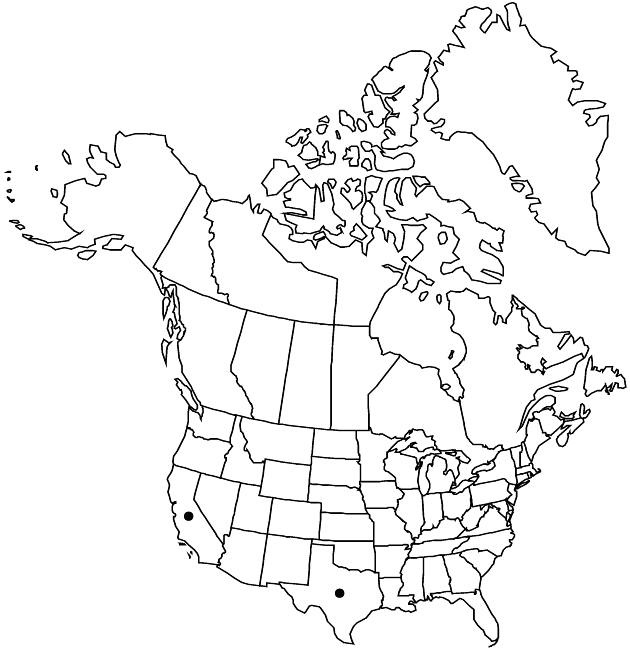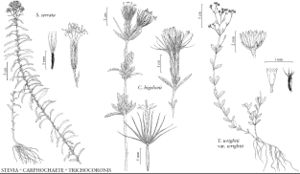Difference between revisions of "Trichocoronis wrightii var. wrightii"
Illustrated
Synonyms: Trichocoronis riparia (Greene) Greene
imported>Volume Importer |
imported>Volume Importer |
||
| Line 50: | Line 50: | ||
|publication year= | |publication year= | ||
|special status=Illustrated | |special status=Illustrated | ||
| − | |source xml=https:// | + | |source xml=https://bitbucket.org/aafc-mbb/fna-data-curation/src/2e0870ddd59836b60bcf96646a41e87ea5a5943a/coarse_grained_fna_xml/V19-20-21/V21_1229.xml |
|tribe=Asteraceae tribe Eupatorieae | |tribe=Asteraceae tribe Eupatorieae | ||
|genus=Trichocoronis | |genus=Trichocoronis | ||
Latest revision as of 20:09, 5 November 2020
Plants sometimes colonial. Leaves mostly 10–25 mm. Involucres 1.8–2.5 mm. Corollas ca. 1 mm. Cypselae ca. 1 mm. 2n = 30.
Phenology: Flowering Feb–Jul(–Oct).
Habitat: Edges of ponds, streams, ditches, wet depressions in clay and sand, prairies, brushlands, roadsides
Elevation: 0–20 m
Distribution

Calif., Tex., Mexico.
Discussion
The California populations of Trichocoronis wrightii have been described as “adventive” and “native to Texas.” Trichocoronis wrightii var. wigginsii R. M. King & H. Robinson is regarded as endemic to Sierra de la Giganta in Baja California Sur. It differs from var. wrightii in its taller, mostly unbranched stems, greater number of flowers per head, and less thickened carpopodial cells (King and Robinson 1970b).
Selected References
None.
Lower Taxa
None.
